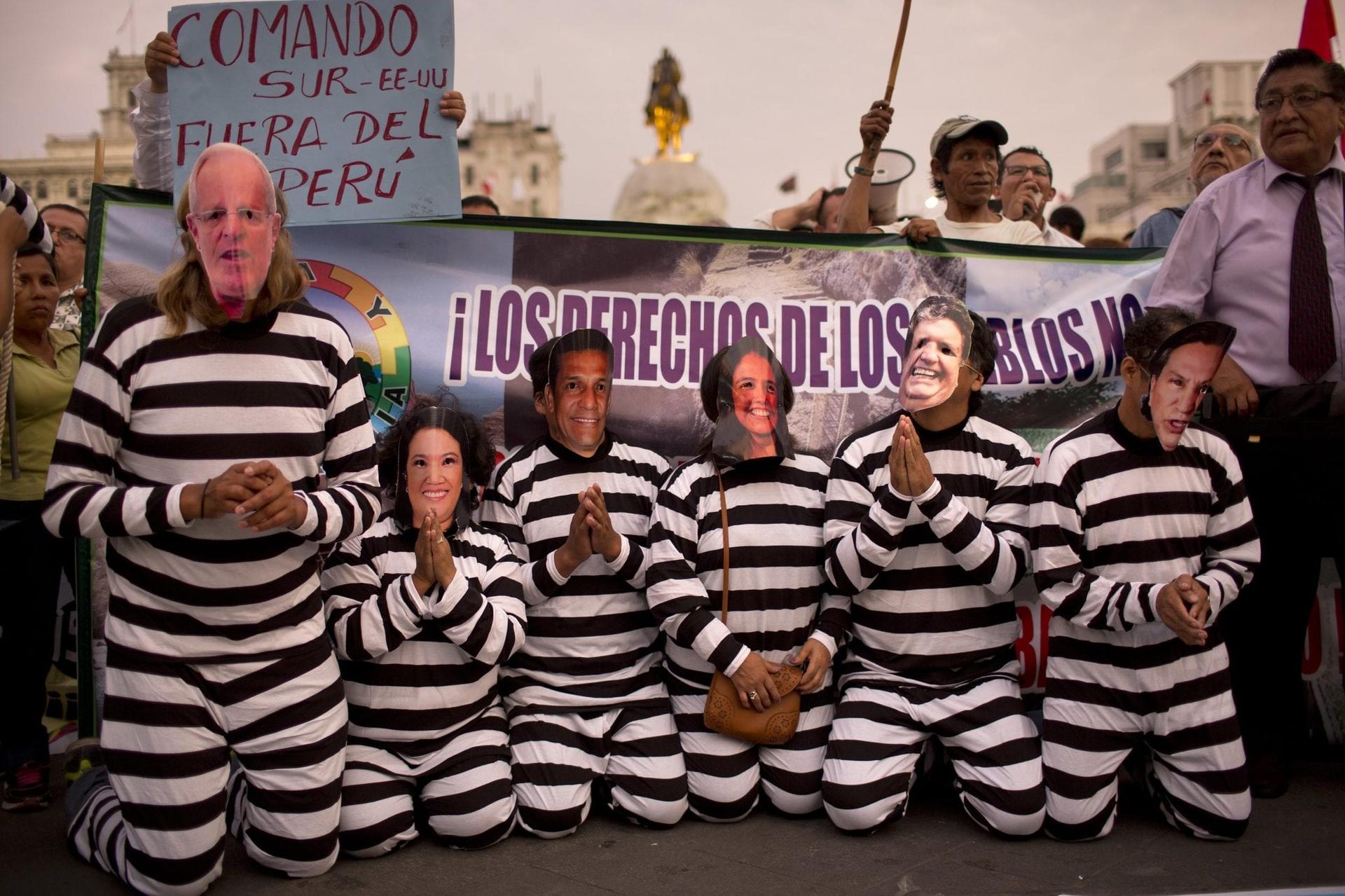ROME – With several ex-presidents in jail and a decades-long history of corruption plaguing the highest ranks of their government, the Peruvian Catholic bishops have decided to fight back at the grassroots, establishing a university course to educate students on the causes of corruption, and how to stop it.
Archbishop Miguel Cabrejos of Trujillo, president of the Peruvian bishops’ conference and president of the Bishops’ Conference of Latin America (CELAM), announced the course during an Aug. 20 press conference at the headquarters of the Peruvian bishops’ conference.
Titled the “Virtual Course on the Fight Against Corruption,” it began this month at 11 Catholic universities in Peru which are under the umbrella of the Organization of Catholic Universities of Latin America and the Caribbean (ODUCAL). It will also have the support of the Institute of Christian Social Studies and the Konrad- Adenauer-Stiftung Foundation.
According to a communique from the Peruvian bishops’ conference, Cabrejos said the course was necessary given the current social climate of Peru.
“This social virus of corruption infects our public and private institutions, and it undermines the resources that the state needs in order to fight poverty,” he said at the presentation of the new initiative, noting that damage is also done “in the way in which Peruvians normalize situations of corruption around us.”
Peru has been marred by several corruption scandals in recent years involving high-ranking members of the government, including former Peruvian President Pedro Pablo Kuczynski Godard.
Among the most famed scandals is the Odebrecht fiasco, which resulted in the ousting of many of those who led Peru after the 1990-2000 authoritarian rule of President Alberto Fujimori, who is currently in prison on charges of corruption. His daughter Keiko – also a politician – was arrested in 2016.
When Pope Francis visited Peru in January 2018, the visit came after Kuczynski narrowly escaped an impeachment vote the previous month after news went public that a company he owned had business ties to the Brazilian construction firm Odebrecht, at the heart of one of Latin America’s most notorious corruption scandals.
In 2016 Odebrecht admitted in a plea bargain with the U.S. Department of Justice that it had paid some $800 million in bribes in 12 Latin American countries.
Prior to the scandals surrounding Kuczynski, several former presidents were already behind bars for corruption, including Kuczynski ‘s predecessor Hollanta Humala, who was jailed in July 2017 for money laundering in connection with Odebrecht.
In July 2017, ex-president Alejandro Toledo, in office from 2001-2006, was arrested after spending several months in hiding.
Kuczynski himself resigned from his post in March 2018, and since April 2019 he has been in pretrial detention due to an ongoing investigation on charges of corruption, money laundering and connections to Odebrecht.
It was also in April that another former president of Peru, Alan García, who served 1985-1990, before Fujimori’s dictatorship, and again 2006-2011, committed suicide when police officers stormed his house to arrest him on corruption charges.
In his comments at the presentation of the new course, Cabrejos said this backdrop is what motivated the Church to partner with Catholic universities in Peru to fight corruption.
“We want to address this problem from the grassroots, from the education of our young people,” he said, “because in their hands is the moral and civil transformation of Peru.”
Father Juan José Lydon, rector of the Catholic University of Trujillo and coordinator of the course, said Catholic universities involved will offer the course either for credit or as material available for use in the curriculum for other courses.
Topics that will be covered in the course include: The history of corruption in Peru; corruption in the world; corruption and human rights; corruption in public life and in the life of the individual and the consequences of corruption in economic-social life, political life and cultural life.
Other topics to be explored are the ethical principles of the Social Doctrine of the Catholic Church; the teachings of St. John Paul II and Pope Francis on corruption; preventative measures with a comprehensive approach; preventative mechanisms; systems of sanctioning to deter corruption, and civic virtues involved in curbing corruption.
Course materials will also be available to the general public pending respective academic policies and plans, to other universities who wish to have it, as well as secondary schools throughout the country who wish to teach the material to their students.
During Francis’s visit to Peru in 2018, in his opening speech to diplomats he called corruption a “subtle form of environmental degradation that increasingly contaminates the whole system of life,” saying it is a virus that “infects everything, with the greatest harm being done to the poor and mother earth.”
“Corruption is avoidable and demands the commitment of all,” he said.
In his comments, Cabrejos echoed these words, insisting that Peruvians “must strive from all walks of life so that our country ceases to be a place of corruption and scandals (and) to give way to a place of opportunities where we all identify with the common good, honesty and equity, since those who suffer the consequences of corruption are the most poor.”
Offering the course, Cabrejos said, is a sign “that the battle still has not ended and that a free and honest Peru is stronger than any form of impunity.”
Follow Elise Harris on Twitter: @eharris_it
Crux is dedicated to smart, wired and independent reporting on the Vatican and worldwide Catholic Church. That kind of reporting doesn’t come cheap, and we need your support. You can help Crux by giving a small amount monthly, or with a onetime gift. Please remember, Crux is a for-profit organization, so contributions are not tax-deductible.
















